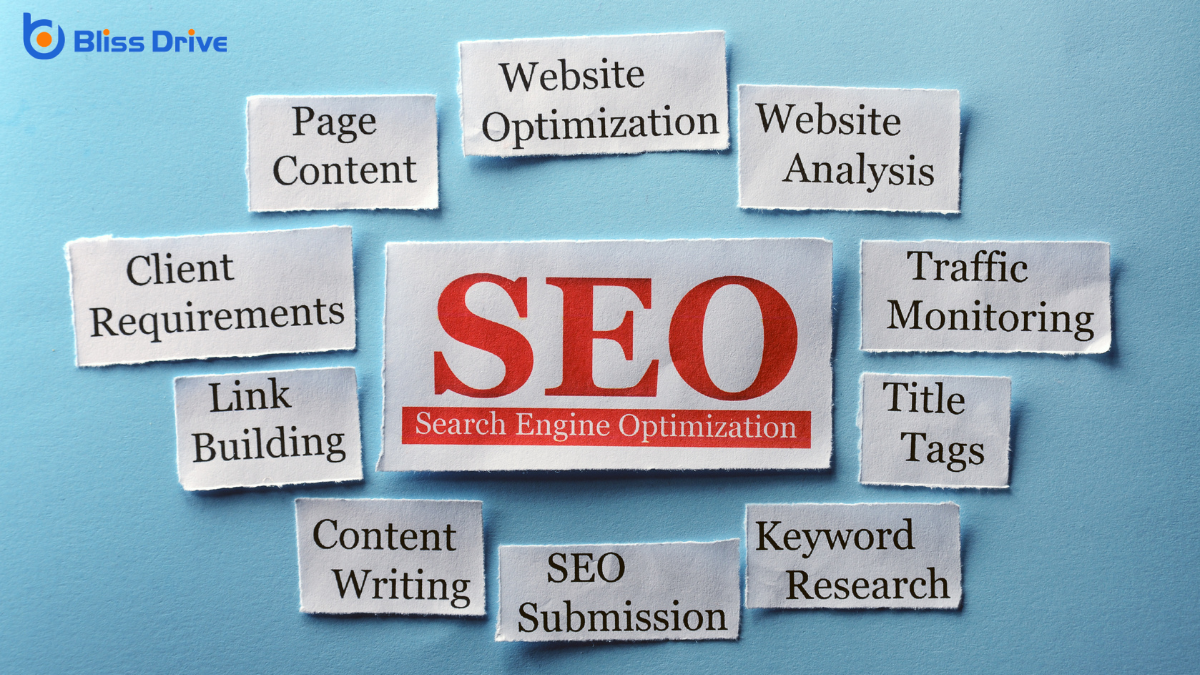Digital Marketing Services
Learn More About Us

When you're looking to enhance your eCommerce SEO, benchmarking becomes essential. It helps you understand where you stand and what needs improvement. Start by evaluating your current metrics like organic trafficVisitors who come to a website through unpaid search engine results. and keyword rankingsThe position at which a website appears in the SERP.. Then, turn your attention to competitors by scrutinizing their strategies. By utilizing SEO toolsSoftware and online tools used for various aspects of SEO, such as keyword research and link buildin..., you'll gather valuable insights. But remember, this is just the beginning; the real journey lies in continuously refining your approach for sustained success.
Although it might seem like just another task on your to-do list, understanding the importance of benchmarking in SEO is essential for your eCommerce success. Without it, you’re traversing the digital landscape blindly.
Benchmarking helps you identify where you stand in the competitive market. It’s like holding a mirror to your current strategies, revealing strengths and areas needing improvement.
By setting clear benchmarks, you can measure progress accurately and adapt quickly to changes. This proactive approach guarantees you’re not just reacting to trends but anticipating them.
It empowers you to make informed decisions, aligning your SEO efforts with business goals. Ultimately, benchmarking is your roadmap to sustainable growth, guaranteeing you stay ahead in the ever-evolving eCommerce arena.

To improve your ecommerce SEO, start by tracking your organic traffic trends to see how visitors are finding you.
Evaluate your keyword rankings to guarantee you're targeting the right search terms effectively.
These metrics will give you a clear picture of your current performance and highlight areas for improvement.
Understanding how to track organic traffic trends is essential for evaluating your current SEO performance metricsKey indicators used to measure the effectiveness of affiliate marketing efforts, such as clicks, con....
You'll want to start by using tools like Google AnalyticsA web analytics service offered by Google that tracks and reports website traffic.. Look at organic traffic over time to identify patterns or fluctuations. This helps you understand if your SEO strategies are driving more visitors to your site or if there's room for improvement.
Compare current traffic levels with past data to spot any significant changes. Keep an eye on metrics like page views, sessions, and bounce rateThe percentage of visitors who leave a website after viewing only one page.. These will give you insight into user engagement and content effectiveness.
When evaluating your SEO performance, measuring keyword rankings is essential. You want to know how well your ecommerce site is performing in search engine results for relevant keywordsWords or phrases that users type into search engines to find information..
Start by identifying the keywords that drive traffic to your site. Use tools like Google Search ConsoleA tool by Google that helps monitor and maintain your site's presence in search results. or SEMrush to track these rankings. Don’t just focus on your top-performing keywords; keep an eye on those that have potential to climb higher.
Tracking changes over time helps you spot trends and adjust your strategy. If a keyword's ranking drops, analyze your content and competitors to identify improvement areas.
Regularly updating your keyword list and optimizing content guarantees you’re aligned with search trends. Ultimately, consistent monitoring helps maintain and enhance your ecommerce visibility.
How do you pinpoint the key competitors in your nicheA specific segment of the market targeted by affiliates to promote products or services.? Start by searching for the main keywords related to your products or services. Notice who consistently shows up on the first page of search results. These are likely your top competitors.
Check their websites to understand their strengths and strategies. Look at their product offerings, pricing, and unique selling propositions. Pay attention to their brandingThe process of creating a unique name, design, and image for a product or service in the consumer's ... and customer engagementThe level of interaction and involvement a customer has with a brand. tactics.
Also, visit social media platforms to see how actively they interact with their audience. Observe the content they're producing and how it resonates with followers.
You're not maximizing your ecommerce SEO efforts if you're not using SEO tools for an extensive analysis.
These tools help you evaluate keyword performance and gain insights into your competitors' strategies.
To truly understand how your ecommerce site is performing in search engines, you must evaluate keyword performance using SEO tools that provide thorough analysis.
These tools help you uncover valuable insights into how your keywords are doing. Here's how you can get started:
While diving into competitor analysisEvaluating the strengths and weaknesses of competitors’ SEO strategies., having a robust understanding of your rivals' strategies can catapult your ecommerce SEO efforts.
Start by leveraging SEO tools like SEMrush, Ahrefs, or Moz. These tools provide insights into competitors' keyword rankings, backlinksLinks from other websites pointing to your website, crucial for SEO., and content strategies. By examining their top-performing pages, you can identify gaps and opportunities in your own strategy.
Look at their meta descriptions, title tags, and site structure to understand what works for them. Pay attention to their backlink profiles—knowing who links to them can guide your outreach efforts.
Also, analyze their social media presence to see how they engage with audiences. By using these insights, you can refine your approach, improve your SEO tactics, and ultimately, outperform your competitors.

Understanding the importance of evaluating on-page and off-page SEOOptimization actions taken outside the website, primarily involving backlinks and social media. factors is essential for optimizing your ecommerce site's visibility and performance.
Begin with on-page elements like content quality and keyword usage. Guarantee your pages are informative and well-structured. Consider the following:
For off-page factors, build your site's credibility with quality backlinks from authoritative sources.
Engage on social media and encourage customers to leave reviews. By focusing on these elements, you’ll improve your site's overall search engine ranking.
Whether you're just starting with ecommerce SEO or looking to refine your strategy, setting realistic and achievable SEO goals is essential for long-term success.
Begin by understanding your current performance—know your traffic, conversionThe completion of a desired action by a referred user, such as making a purchase or filling out a fo... rates, and keyword rankings. Use this data to set clear targets. For instance, aim to increase organic traffic by a specific percentage over a defined period.
Avoid overly ambitious goals that might leadA potential customer referred by an affiliate who has shown interest in the product or service but h... to frustration. Instead, break larger goals into smaller, manageable milestones. Consider your resources, time, and budget to shape your goals realistically.
Regularly review and adjust your goals based on performance and industry changes. By focusing on attainable objectives, you’ll foster steady growth and maintain motivation as you see your ecommerce business progress.
To guarantee your ecommerce SEO strategy remains effective, you must consistently monitor and adapt it over time.
Start by keeping a close eye on your website’s analyticsThe systematic computational analysis of data or statistics to gain insights and support decision-ma.... This will help you understand what's working and what needs change.
Here’s how you can stay on top of your SEO game:
To effectively benchmark your eCommerce SEO, start by understanding your current performance metrics. Identify key competitors and analyze their strategies. Use SEO tools to get a thorough view of your on-page and off-page factors. Set realistic goals and regularly monitor your progress. Adapt your strategy as needed to guarantee sustainable growth. By staying proactive and making data-driven decisions, you'll optimize your SEO efforts and maintain a competitive edge in your niche.
